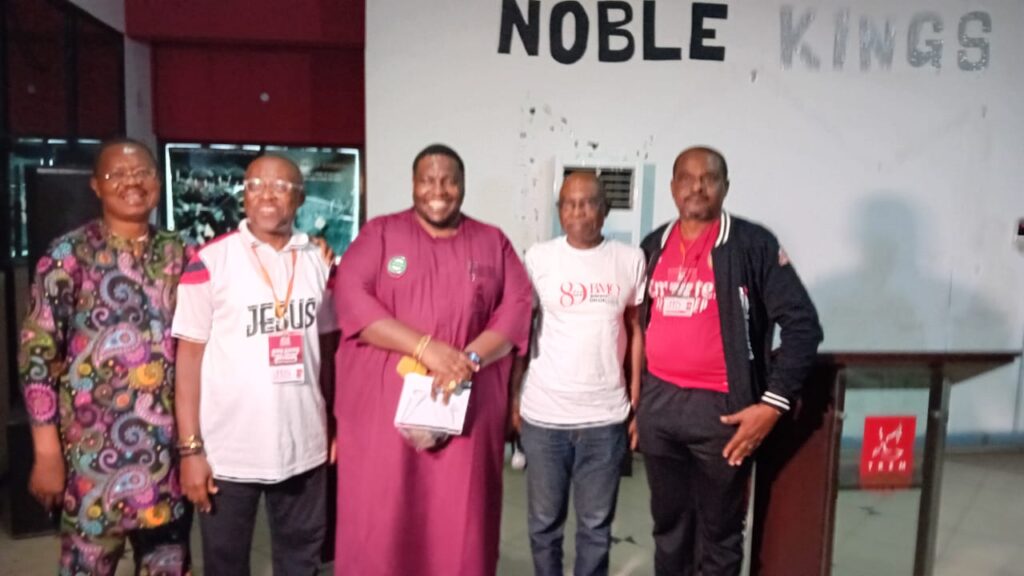A consultant to the Lagos State Government on Green Economy, Dr. Adebola Odunsi, has projected that Lagos can generate up to $3 billion annually through efficient and effective waste management.
Speaking in an interview with Sunday Telegraph, on the sidelines of a business session organized by the Christian Men Fellowship (CMF) of The Redeemed Evangelical Mission (TREM) International Headquarters in Obanikoro, Lagos, Odunsi revealed that individuals engaged in the collection and recycling of PET plastic waste in the state currently make an estimated ₦400 million daily.
“When the revenues from other waste streams are aggregated, the total becomes even more substantial,” he said.
The business session was part of CMF’s 2025 Annual Camp Meeting themed: “Rest In His Presence.”
According to Odunsi, Lagos generates between 13,000 and 15,000 metric tonnes of municipal solid waste daily, with a material recovery rate of only 3–5 percent. He emphasized that the economic and environmental implications of inefficient waste handling are significant.
“The FMCG and F&B sectors alone lose up to ₦3 trillion annually due to unrecovered packaging under the Extended Producer Responsibility (EPR) gap,” he said. “For the Lagos State Government, the costs range between ₦9 billion and ₦12 billion annually for activities including household waste collection, street cleaning, dumpsite management, and the mitigation of impacts such as flooding, public health crises, and productivity losses.”
Odunsi, who is also the Managing Director and CEO of Integritas Limited, underscored the role of faith-based organizations (FBOs) in driving environmental and societal transformation.
“FBOs in Nigeria engage over 67 million people,” he said. “Their influence makes them powerful platforms for climate advocacy, social change, and community mobilization.”
He noted that the circular or green economy is inclusive and aligns with Christian values of stewardship, compassion, and community upliftment.
“By promoting sustainability, FBOs can enhance community engagement and attract new members while advancing climate-friendly initiatives within the church,” he added.
Quoting findings from a UK government-backed study, Odunsi said, “Lagos State can make about $3 billion annually from optimizing the circular economy—by transforming waste into resources instead of letting it pollute the environment.”
He further explained that perception, a culture of convenience, and the business-as-usual (BAU) model were barriers to progress, but could be overcome through incentives, tokenization, and behavioral reorientation.
“We need to institutionalize the throughput of waste recovery and establish a ‘waste-to-X’ ecosystem,” he said. “Lagos is already creating favorable conditions to attract investment into the circular economy space. There’s also a growing need to decriminalize informal waste collection and create standards, as waste can be tokenized and monetized.”
Highlighting the global opportunities, Odunsi said the Environmental, Economic, Social, and Governance (EESG) model can unlock access to $40 trillion in global credit and $1.9 trillion in private investment, while also generating income through extended producer responsibility, green credits (carbon and plastic), and sustainability-linked financing.
“Waste is a matter of perception,” he stated. “Proper waste management is both a civic and spiritual duty. What we call waste is a God-given resource that can generate wealth if processed through the right systems.”
He emphasized that change must begin at the grassroots.
“The transformation starts from households and communities. Everyone should be aware and contribute their systems and businesses to optimize waste recovery. There’s enough value in waste for everyone,” he said.
Referencing PET plastic waste alone, Odunsi noted, “₦400 million is currently being generated daily from just this one stream. Imagine the possibilities when standards and regulations are properly enforced across other sectors. Faith-based groups like TREM can help build the structure needed to realize this potential. After all, these people are our church members. It’s a win-win situation.”
President of CMF, TREM Headquarters, Mr. Lanre Aiyegoro, also stressed the importance of waste-to-wealth strategies, saying they can create jobs, enhance wealth distribution, foster a healthier ecosystem, and help combat climate change.
Resident Pastor of TREM Headquarters, Bishop Peace Okonkwo, prayed for accelerated breakthroughs in the businesses, careers, families, and health of camp participants. She urged them to remain diligent, innovative, honest, and God-fearing, assuring that God had already set plans in motion to elevate them.















